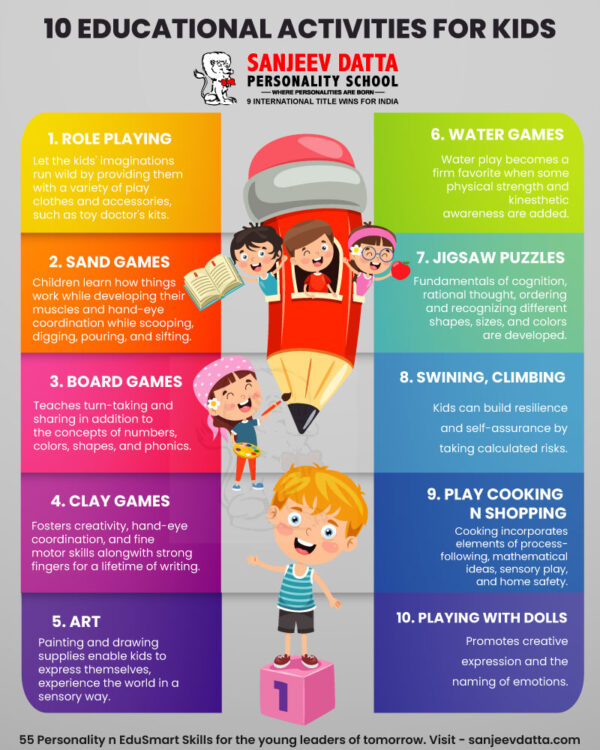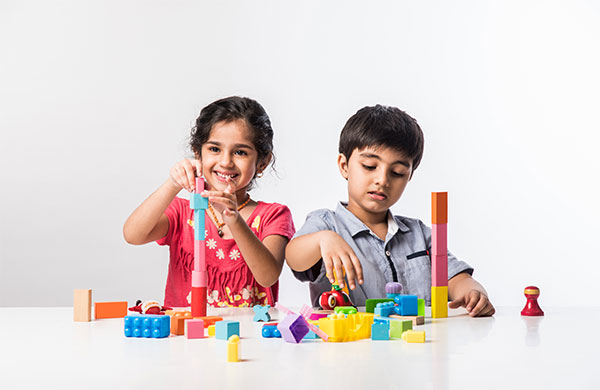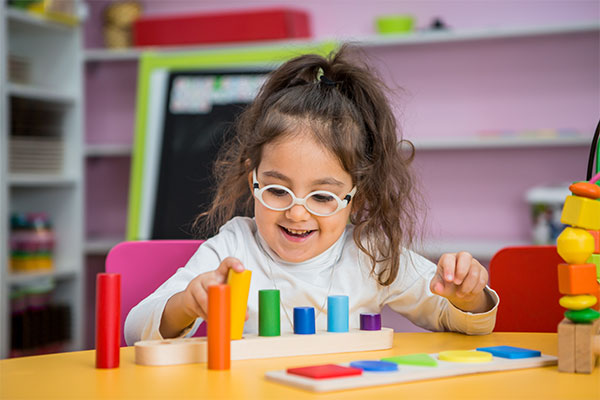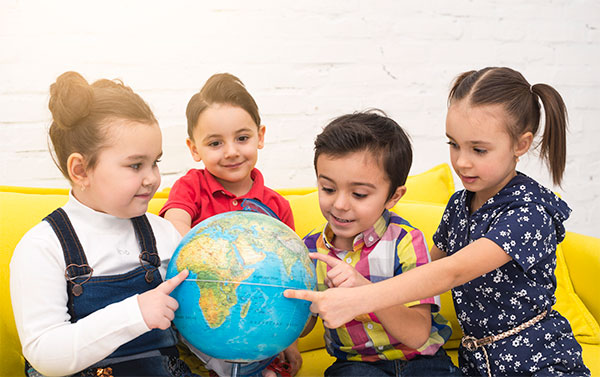Unlocking the full potential of every child is not only a moral imperative but also a strategic investment in our collective future. Education, at its core, is not just about imparting knowledge; it is about fostering holistic child development. By prioritizing and nurturing child development in education, we can ignite a spark of brilliance in each child, empowering them to thrive academically, socially, and emotionally. In this article, we delve into the captivating world of child development and understand the importance of child development in education.
- Building Strong Foundations for Lifelong Learning:

Childhood serves as the bedrock for learning. By focusing on child development in education, we lay strong foundations for a lifelong love of learning. During their early years, children experience significant brain development, forming neural connections that shape their cognitive abilities, language skills, and problem-solving capabilities. By providing stimulating and developmentally appropriate learning environments, we foster curiosity, critical thinking, and a thirst for knowledge that can fuel a child’s educational journey for years to come.
2. Maximizing Individual Potential:

Every child possesses a unique set of talents, abilities, and interests. By prioritizing child development, education can become a powerful catalyst for unlocking and maximizing individual potential. When we embrace a child-centered approach, tailoring instruction and learning experiences to their specific needs and learning styles, we create an environment where each child can flourish. By recognizing and nurturing their strengths, we instill confidence, self-belief, and a sense of purpose, enabling them to excel and make meaningful contributions to society.

3. Fostering Social and Emotional Well-being:

Enrolling your child in the best personality development school is not solely about academic achievement; it also encompasses the social and emotional growth of a child. By focusing on child development, we create inclusive and supportive learning environments that nurture social skills, empathy, and emotional intelligence. Through collaborative projects, peer interactions, and character education, children learn the importance of teamwork, respect, and resilience. These essential life skills prepare them to navigate relationships, handle challenges, and become responsible and compassionate members of society.
4. Cultivating Critical Thinking and Problem-Solving Skills:

In an ever-changing world, the ability to think critically and solve complex problems is paramount. Child development in education nurtures these essential skills from an early age. By encouraging inquiry-based learning, hands-on activities, and opportunities for exploration and discovery, we ignite the innate curiosity and problem-solving capabilities within children. They learn to analyze, evaluate, and apply knowledge in real-world contexts, fostering adaptability, innovation, and a growth mindset that prepares them for future challenges and opportunities.
Visit: preschool activities for kids
5. Enhancing Well-rounded Development:

It embraces a holistic approach, recognizing the importance of physical, creative, and social development. Through physical education, arts programs, and extracurricular activities, children develop their motor skills, creativity, self-expression, and teamwork abilities. Such well-rounded development contributes to their overall well-being, self-esteem, and a balanced lifestyle that nurtures their talents and passions.
Promoting Lifelong Success and Happiness: Ultimately, the goal of education is to equip children with the tools and skills they need to succeed in life and find happiness. By prioritizing child development, education becomes a transformative journey that prepares children for a fulfilling and prosperous future. When children experience a positive and nurturing educational environment that values their unique abilities, interests, and well-being, they develop a lifelong love for learning, become resilient in the face of challenges, and find joy and purpose in their personal and professional pursuits.
6. Cultivating Cultural Awareness and Global Citizenship:

Child development in education provides opportunities to promote cultural understanding, empathy, and global citizenship. By exposing children to diverse perspectives, traditions, and experiences, we foster tolerance, respect, and appreciation for different cultures. This prepares them to thrive in a multicultural and interconnected world, becoming responsible global citizens who contribute positively to society.
Visit: self esteem activities for kids
7. Encouraging Lifelong Health and Well-being:

Personality development for kids in education goes beyond academic achievements. Education plays a vital role in promoting physical and mental health. By integrating health education, physical activity, and mindfulness practices into the curriculum, we instill healthy habits and self-care routines in children. This equips them with the knowledge and skills to make informed decisions about nutrition, exercise, and managing stress, leading to improved overall well-being throughout their lives.
8. Nurturing Creativity and Innovation:

Child development in education fosters creativity, imagination, and innovation. By providing opportunities for artistic expression, problem-solving challenges, and open-ended projects, we encourage children to think outside the box, explore their passions, and develop their unique creative abilities. These skills are essential for adapting to a rapidly changing world and driving innovation in various fields.
9. Building Resilience and Grit:

Child development in education cultivates resilience and perseverance in the face of challenges. By creating a safe and supportive learning environment that encourages risk-taking and learning from failures, we teach children how to bounce back, develop grit, and embrace a growth mindset. These qualities enable them to overcome obstacles, persist in their pursuits, and thrive in the face of adversity.
Visit: importance of pedagogy in teaching
The importance of child development in education is the heartbeat of personal development. By embracing and prioritizing it, we create an educational landscape that nurtures each child’s potential, ensuring their well-rounded growth and preparing them for a successful and fulfilling future. From building strong foundations for lifelong learning to fostering social and emotional well-being, child development in education is the key to unlocking brilliance in every child.
Why Sanjeev Datta Personality School?
- Interview Training
- Leadership
- Presentation Training
- Social Boldness
- Dressing Etiquette
- Office Etiquette
- Communication Skills
- English Speaking
- Anger Management
- Time Management
- Team Building
- Performance Enhancer
- Soft Skills
- Goal Setting
- Career Counselling
- Student Subject Choice Counselling
- Listening Skills
- Video Presentation
- Meditation
For more details, contact us now!


